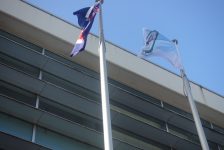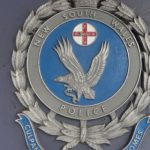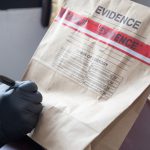NSW Police Could Face Charges Over Illegal Bugging

By Blake O’Connor and Ugur Nedim
The powers of the NSW Police Force have been steadily expanding for well over a decade.
Unlike police in the United States, officers in our state are allowed to ‘shoot first and ask questions later’ in many situations; for example, NSW police are allowed to arrest and charge a person with a criminal offence upon a mere “reasonable suspicion” of wrongdoing.
By contrast, police in the US must gather evidence which amounts to “probable cause” before they are permitted to arrest and charge a suspect – a far more stringent test.
And the powers of NSW police are certainly not limited to arrest and prosecution – police have been given relatively unfettered access to the meta-data of individuals, broad powers to conduct various forms of surveillance, to take forensic samples, to conduct raids (in some cases, with immunity from civil and criminal prosecution if they use excessive force), to hold people for extended periods of time without charge under control orders, to regulate and control peaceful protests, to control the associations and movements of individuals through anti-consorting laws, public safety orders and serious crime prevention orders, and the list goes on.
But the powers of NSW police are not unlimited – they are still normally required to obtain warrants which are are supported by truthful affidavits, before they can lawfully intercept telephone communications.
Illegal Bugging
The NSW Ombudsman, Professor John McMillan, has vowed to recommend criminal charges against several current and former NSW police officers for illegally bugging over 100 colleagues, including former deputy commissioner Nick Kaldas.
The magnitude of the findings has led McMillan to advertise for a senior investigator to assist with compiling briefs of evidence against offending officers.
Operation Prospect
‘Operation Prospect’ was established four years ago to investigate law enforcement officers who unlawfully obtained listening device warrants between 1999 and 2001, using them to bug the phone lines of both police officers and civilians, including Channel Seven’s Steven Barrett and Daily Telegraph crime editor Mark Morri.
McMillan has already stated that of the 112 names on listening device warrants that were investigated, 54 were found to have no proper justification.
At least 33 serving and former law enforcement officers have been issued with ‘show-cause’ notices to date, requiring them to explain their conduct. However, the specific allegations will not be detailed until McMillan releases his full report.
Whistleblower Protection
A number of officers within the NSW Police Force have expressed concerns that those who assisted in Operation Prospect will themselves be prosecuted under laws which make it a crime to leak information obtained during the course of public office, even if that information suggests corruption by other officers.
Indeed, Australia is increasingly coming under fire for persecuting whistleblowers – with organisations that are meant to be exposing corruption ironically demanding that more whistleblowers be prosecuted.
Greens MP David Shoebridge echoes these concerns:
“It would be a crime if this multi-million dollar four-year inquiry ended up prosecuting the brave whistle-blowers who stood up and demanded accountability for the police bugging scandal… this is a scandal causing deep hurt and division in the NSW Police Force and no further delays are acceptable”
Powers of the NSW Ombudsman
The NSW Ombudsman operates as an independent and impartial watchdog over the NSW public sector, acting as a check on corruption and other abuses of power.
However, the Ombudsman’s office is drastically under-resourced – receiving 11,109 formal written complaints in the 2015-2016 year alone, with the capacity to investigate only a small portion of them.
Moreover, the Ombudsman does not have the power to prosecute, or even compel the prosecution of, those he finds against. Rather, the Ombudsman Act 1974 (NSW) allows the Ombudsman to investigate complaints and recommend charges to the Director of Public Prosecutions, who makes the decision on decides whether to prosecute.
It will be interesting to review the Ombudsman’s specific findings when his final report is released, and monitor whether the DPP acts upon his recommendations.






